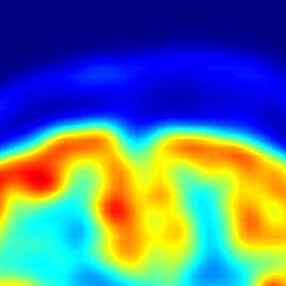
New drug that protects dopamine cells is one of the latest discoveries in the field of Parkinson’s research and raises treatment hope for patients with the condition.
The team working on the screening and test include members from the University of Nebraska Medical Center (UNMC) in Omaha and also highly trained team of medical specialists from Longevity Biotech, Inc. of Philadelphia, PA. A week ago some new reports of the findings were published in The Journal of Neuroscience.
'The results we have are fairly exciting - they provide a bridge between the immune system and nerve cell protection in Parkinson's disease.', says Coauthor Dr. Scott Shandler, co-founder and CEO of Longevity Biotech, cited by Medical News Today. The basic idea for the development of such a drug dates back nearly 10 years ago. Back in 2005 there was a discovery showing that a certain type of white blood cell was attacking the brain cells – the exact same cells that are to be “held responsible” for Parkinson's, says Senior author Howard Gendelman, a professor of pharmacology and experimental neuroscience at UNMC.
The new Longevity Biotech drug (LBT-3627) showed promising results and was able to change the function of these cells from killing the nerve cells to protecting them, also adds Gendelman. Parkinson's disease is also known as idiopathic or primary parkinsonism, hypokinetic rigid syndrome, or paralysis agitans. It is a seriously degenerative disorder of the central nervous system, mainly affecting the motor system in humans. It is known that the motor symptoms of the disease result from the death of dopamine-generating cells in the substantia nigra - a region of the midbrain. Dopamine transports brain signals that control a number of functions, including movement.
The causes of this cell death are poorly understood. As the devastating brain-wasting disease takes it’s progress, patients gradually lose their ability to walk, talk and take proper care of themselves. Researchers have known for quite some time that Parkinson's disease changes both dopamine and non-dopamine brain cells and their signaling pathways.
The condition also causes inflammatory changes to microglia – the innate immune cells found in the central nervous system, and also infiltration of T lymphocytes – white blood cell in the adaptive immune system. Another hallmark of Parkinson's disease is the accumulation and progressive spread of protein clumps called Lewy bodies in the region of the brain most affected by loss of dopamine cells.
Some scientists are beginning to think the protein clumps accelerate the disease. About a decade ago research specialists discovered that activated microglia and white blood cells play amajor role in neurodegeneration in Parkinson's disease. Before that it was widely accepted that most of the changes were a direct result of prior injury rather than influencers of primary events.
The evidence from that study shows that the immune system can both act as a protector and attacker of the brain. The experimental drug LBT-3627 is similar to a naturally occurring, well-established anti-inflammatory molecule called VIP that is effective in a wide range of degenerative disorders. However, there have been problems with basing new drugs on VIP - one reason being it rapidly degrades in the body. Another reason is that is unable to distinguish between its two naturally intended receptors - VPAC1 and VPAC2. Receptors are molecules that receive signals from outside the cell. They only connect to specific molecules known as agonists.
The developers use this feature to make agonist drugs change the behavior of the cells or, in this case, to prevent immune cells from acting in as an inflammatory cause, and divert them to act as anti-inflammatory.
LBT-3627 is different to VIP in two main respects: it targets specifically only one of the receptors - VPAC2. The drug also appears to last much longer than VIP in the body before degrading rapidly. Another advantage is the possible oral route of administration, which makes it far more accessible for motor system challenged patients. When the research team tested the drug in a mouse model of Parkinson's disease, the multidisciplinary team or researches concluded it could achieve pretty high levels of protection of dopamine-producing cells - up to 80%.
The developers also found that the drug had an effect on the microglia cells, and that they were ultimately responsible for the protective effect that halted the brain damage. The researchers are positive about the results and certainly hoping to begin a phase 1 clinical trial of LBT-3627 in humans pretty soon. At the current moment the deadline is by 2017, after completing more crucial pre-clinical tests of the promising drug.
There are more than10 million people in the world that are living with Parkinson's disease. Around 60,000 people are diagnosed with the disease each year in the United States alone.
Posted by : mediKa.bg





